Published: 2024-04-05

In today's competitive hospitality landscape, technology isn't a luxury; it's a necessity. The right hotel software suite can streamline operations, improve the guest experience, and give your property an edge over competitors. But with so many systems to choose from, where should you start? Let's break down the essential tools you need to run your hotel efficiently and profitably.
A Property Management System (PMS) is a software application that serves as the central nervous system of a hotel. It handles a wide range of essential operations from the front desk to back-office tasks.
Think of it as the digital control center that helps hotels manage their day-to-day activities.
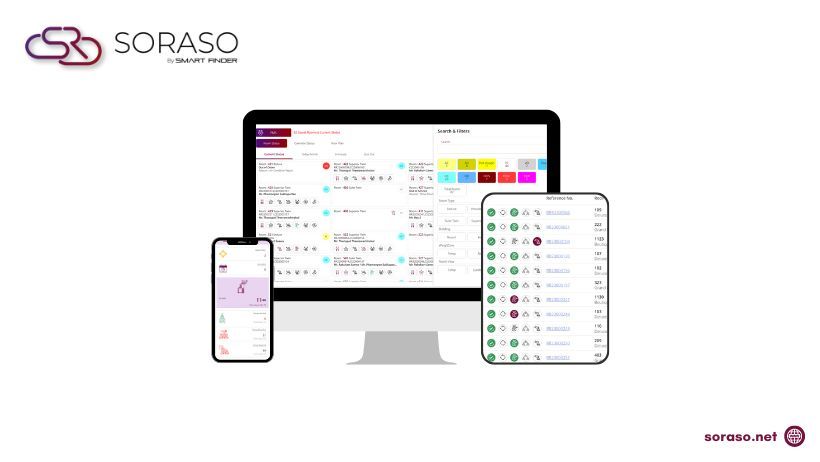
Reservations and Bookings Management
Guest Check-in/Check-Out
Guest Profile Management
Front Desk Operations
Housekeeping Management
Reporting & Analytics
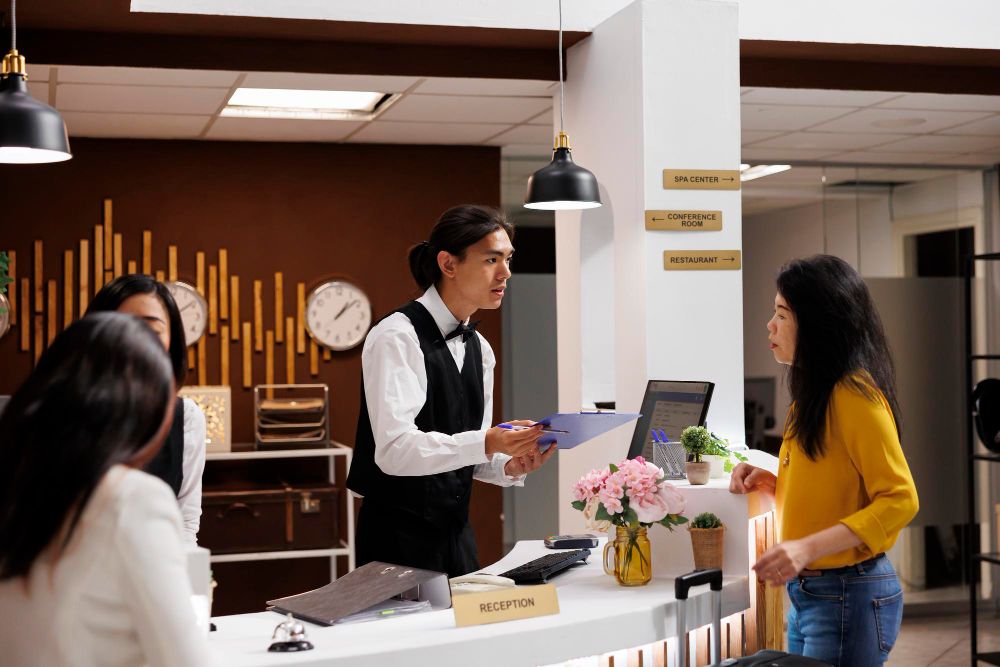
Efficiency
A PMS automates many manual, time-consuming processes, freeing up staff to focus on guests.
Centralized Control
One system manages all aspects of hotel operations, eliminating the need for multiple, disparate programs.
Improved Guest Experience
A PMS enables personalized service, faster check-in/check-out, and streamlined communication.
Increased Revenue
A PMS can help optimize pricing and prevent overbookings, thus maximizing profitability.
Data-Driven Insights
Detailed reporting helps hotels make informed business decisions and identify trends.
Modern PMS systems often have advanced features, including integrations with:Channel Managers
To update inventory and pricing on online travel agencies (OTAs) seamlessly.
Revenue Management Systems
For strategic pricing recommendations.
Guest Communication Platforms
To enhance guest interactions.
Point of Sale (POS) Systems
To manage on-site outlets like restaurants and spas.
A channel manager is a software tool that connects your hotel's Property Management System (PMS) to various online travel agencies (OTAs) and other online booking platforms like:
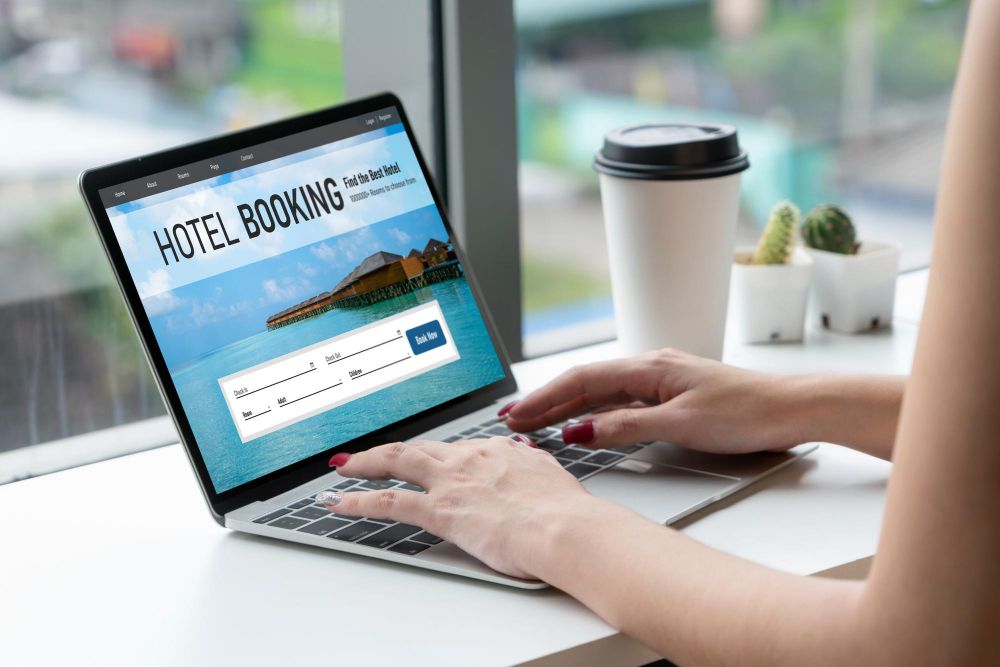
Two-Way Connection
The channel manager establishes a real-time, two-way connection between your PMS and all connected booking channels.
Centralized Inventory
Your room availability and rates are pooled from your PMS and made instantly visible on all connected booking sites.
Automatic Updates
Whenever a booking is made on any platform, the channel manager does the following:
Saves Time and Effort
Without a channel manager, you would have to log in to each OTA's extranet individually to update your availability and rates every time you get a booking – a tedious and time-consuming task.
Prevents Overbookings
The real-time synchronization ensures that your available rooms are always accurately reflected across all channels, eliminating the risk of accidentally overbooking your hotel.
Increases Visibility
A channel manager expands your reach by distributing your rooms on multiple popular platforms, making your hotel visible to a wider audience.
Boosts Revenue
By making it easier for potential guests to find and book your rooms, a channel manager can increase your occupancy and revenue.
Number of Supported Channels
Ensure the channel manager connects to the OTAs and booking platforms relevant to your target clientele.
Ease of Use
Look for a user-friendly interface that your staff can learn easily.
Reliability
Choose a channel manager with an excellent track record of avoiding overbookings and syncing inventory flawlessly.
Support
Ensure the provider offers timely and helpful customer support in case of any issues.
A Point of Sale (POS) system is the location where a customer completes a transaction with a business. This could be a physical location like a checkout counter, or a virtual location like an online store.
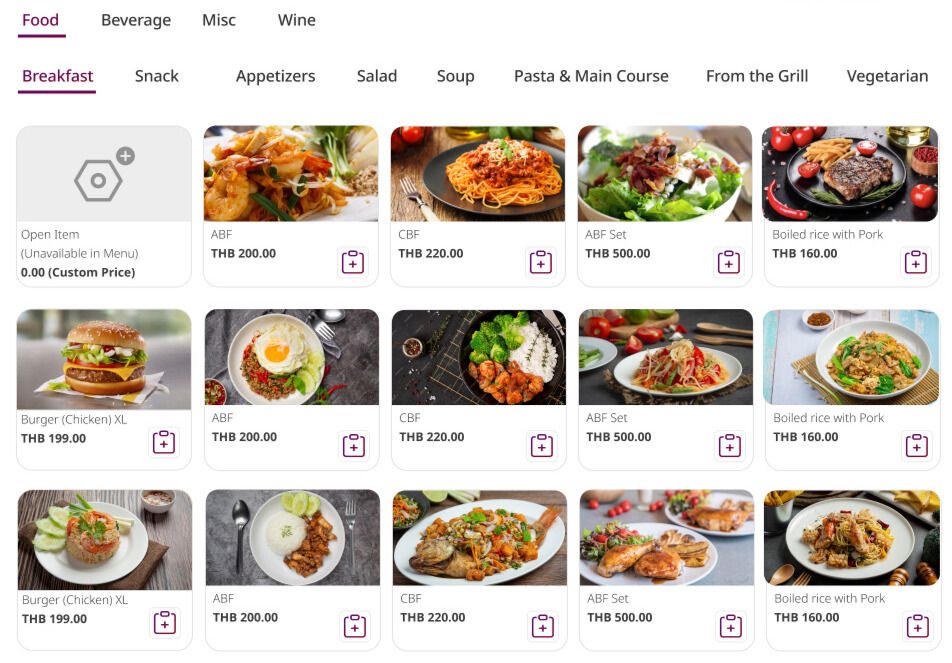
Sales Transactions
Ring up sales, calculate totals, process various payment types (credit cards, debit cards, mobile payments, cash, etc.), and generate receipts.
Inventory Management
Track product stock levels, automatically order low inventory items, and generate sales reports.
Customer Relationship Management (CRM)
Store customer information, track purchase history, and create customer loyalty programs.
Employee Management
Clock in/clock out employees, track sales performance, and manage labor scheduling.
Reporting and Analytics
Generate reports on sales, profits, inventory movement, and other key business metrics.
Hotels use POS systems extensively in various revenue-generating outlets:
Restaurants and Bars
Taking orders, managing tabs, splitting checks, processing payments, and communicating with the kitchen.
Spas and Wellness Centers
Booking appointments, managing retail product sales, and processing payments.
Gift Shops
Handling retail transactions and managing inventory.
Event and Conferences
Billing for catering services, equipment rentals, and other event-related charges.
Room Service
Allowing guests to order food and drinks directly from their rooms and adding the charges to their room bill.
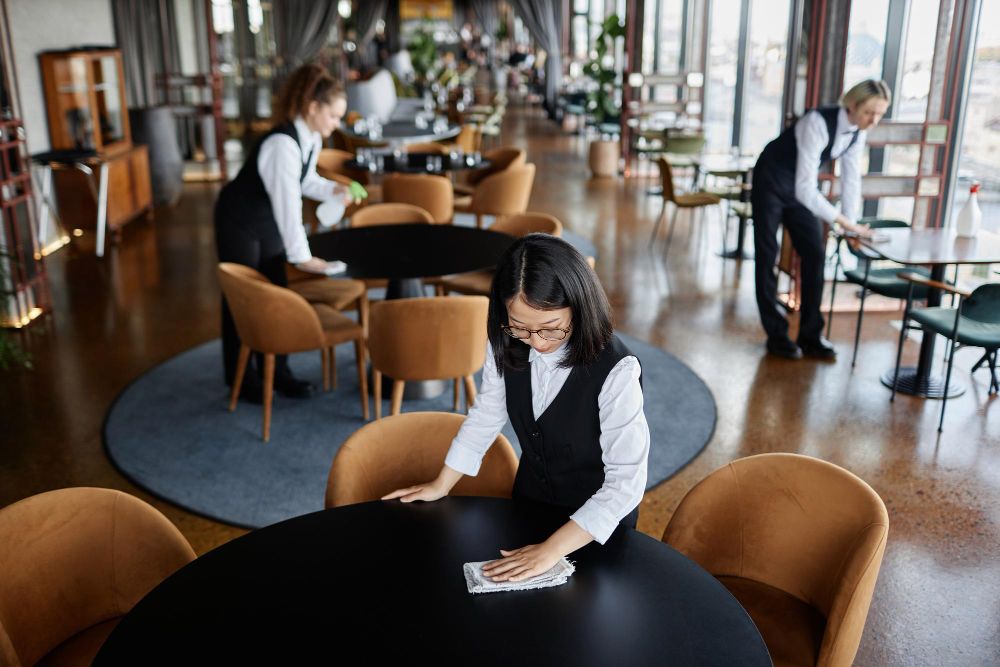
Traditional POS
Countertop systems with cash drawers, receipt printers, card readers, and often touch-screen displays.
Mobile POS
Tablet-based systems that offer portability and flexibility, perfect for tableside service or taking payments anywhere in the hotel.
Cloud-Based POS
Systems that store data in the cloud, allowing for remote access, data analytics, and easier scalability.
Streamlined Operations
Faster, more accurate transactions, and efficient inventory management.
Improved Guest Experience
Quicker service and convenient payment options.
Enhanced Data Insights
Detailed sales data for decision-making.
Integration with PMS
A seamless connection with your Property Management System to consolidate guest charges and provide a unified view of spending.
A booking engine is a software application that's integrated directly into your hotel's website. It allows guests to check room availability, view different room types, see prices, and complete their reservations securely in real-time.
Think of it as your hotel's own online reservation portal, empowering guests to book directly with your property.
Integration
The booking engine connects directly to your hotel's Property Management System (PMS) or a channel manager if you use one.
Displays Real-Time Availability
The booking engine pulls live availability and rate information from your PMS.
Guest Interface
The booking engine provides a user-friendly interface for guests to:
Reservation Confirmation
The booking engine sends an automated confirmation email to the guest and updates your PMS with the new reservation details.
Drives Direct Bookings
A booking engine allows you to shift bookings away from online travel agencies (OTAs) and their hefty commissions, leading to increased revenue.
Improves Guest Experience
A booking engine offers a seamless, convenient way for guests to book, improving their satisfaction with your hotel.
Ownership of Guest Data
When guests book directly, you collect their contact information and preferences, allowing for targeted marketing and building stronger relationships.
Gain Pricing Control A booking engine gives you full control over the rates you display and any promotions you wish to offer.
User-Friendly Interface
Intuitive design for easy navigation and booking.
Mobile Optimization
Essential for guests booking from smartphones and tablets.
Secure Payment Processing
Built-in payment gateway for safe transactions.
Promotional Capabilities
Ability to showcase special offers and packages.
Customization
Option to match your hotel's branding.
Multilingual Support
Deliver better guest experience through personalization.
A guest service app is a mobile application designed to enhance the guest experience at hotels. It typically works by allowing guests to download the app on their own smartphones or tablets, giving them access to a range of hotel services and information.
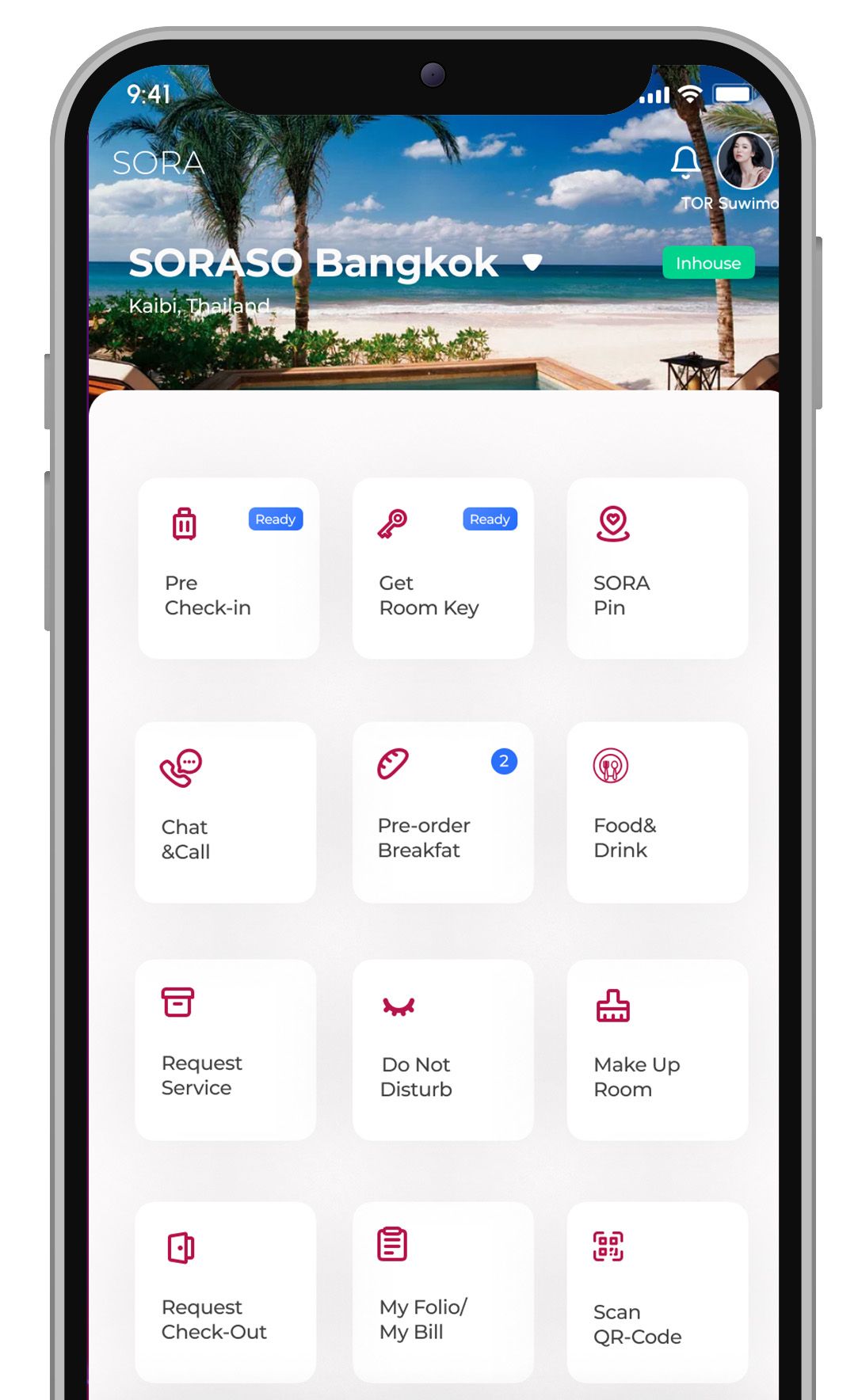
Mobile Check-in/Check-out
Guests can skip the front desk lines and check in or out directly from their phones.
Digital Room Keys
Allows guests to unlock their room doors using their smartphones.
Requests and Concierge Services
Guests can make requests for housekeeping, room service, maintenance, etc., directly through the app.
Messaging
Real-time communication between guests and hotel staff for questions, requests, or feedback.
Hotel Information
Provides hotel directories, information on amenities, local attractions, and events.
In-Room Control
Some apps may integrate with smart room technology, allowing guests to control lighting, temperature, and entertainment systems.
Loyalty Programs
Integration with the hotel's loyalty program, allowing guests to track points and redeem rewards.
Improved Guest Experience
Provides greater convenience, faster service, and a more personalized stay for guests.
Increased Operational Efficiency
Reduces workload for front desk staff and streamlines request management.
Contactless Service
Appeals to guests who prefer minimizing in-person interactions, especially in the post-pandemic era.
Enhanced Communication
Creates a direct communication channel with guests, improving responsiveness and issue resolution.
Data and Insights
Collects valuable data on guest preferences and behavior, which helps tailor services and marketing efforts.
Upselling Opportunities
Promotes additional hotel services and amenities through the app, generating potential for increased revenue.
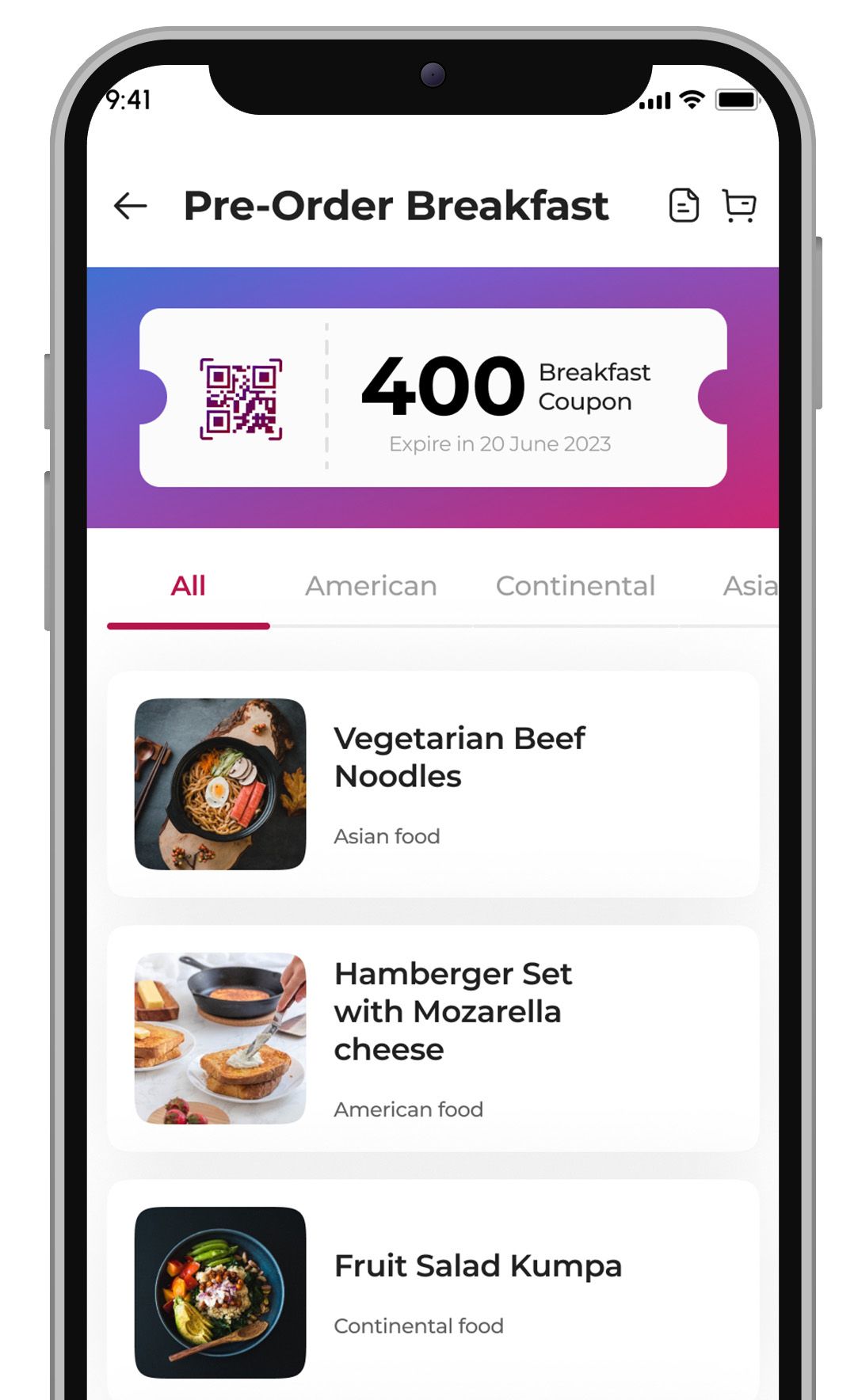
Features
Identify the features most important to your property and guest demographics.
Usability
The app should be intuitive and easy for guests of all ages and technical backgrounds to navigate.
Integration
Ensure it integrates seamlessly with your existing PMS, POS, and other hotel systems.
Security
Always choose a provider with robust security measures to protect guest data.
Select software providers that offer robust features, excellent customer support, and integrate seamlessly with your existing systems. Cloud-based solutions are generally favored for scalability and remote access.
Investing in the right hotel software is about more than just efficiency. It's about giving your staff the tools they need to excel and providing guests with the seamless experience they demand in a tech-driven world.
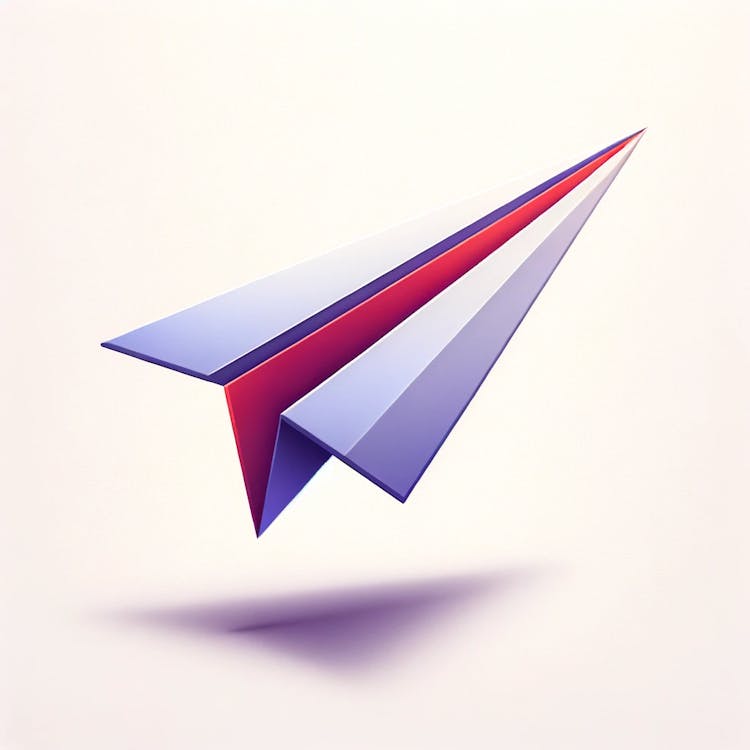
Stay up to date with the latest news and updates from Soraso.
*By subscribing, you agree to our privacy policy
We Value Your Privacy
We use cookies to enhance your experience on our site, analyze site usage, and assist in our marketing efforts. By continuing to browse or by clicking 'Accept,' you agree to the storing of cookies on your device. To learn more about how we use cookies and your choices regarding our use of cookies, please see our Cookies Policy.